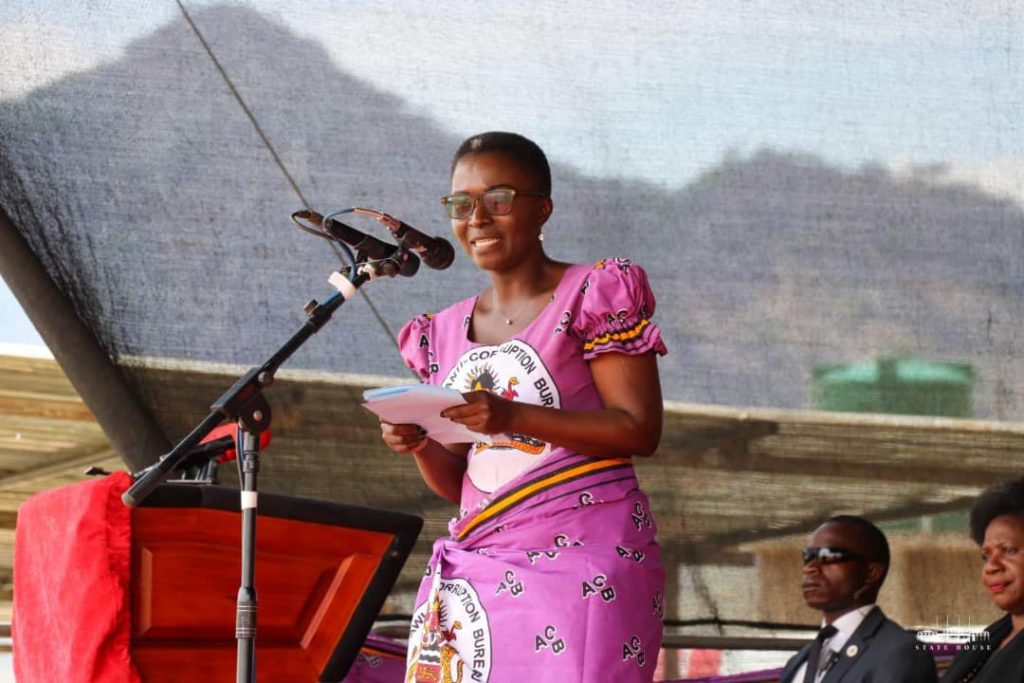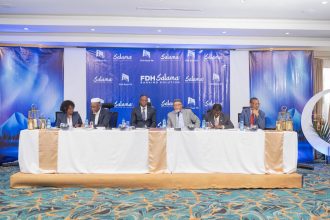ACB speaks on TPIN and Sattar-related cases
What is the status of former president Peter Mutharika TPIN, Zuneth Sattar, Msukwa and Batatawala cases? Is the Anti-Corruption Bureau (ACB) ready for the cases? Is ACB, the Office of the Director of Public Prosecutions (DPP) and the Malawi Police Service (MPS) pulling in the same direction on investigations and prosecutions? Weekend Nation Editor STEVEN NHLANE caught up with the ACB director general Martha Chizuma last week to answer these and other questions. Chizuma was on Tuesday this week interdicted. Excerpts:

Q. What is your reaction to the claim that some cases are taking long to conclude because the ACB, the office of the DPP and MPS are not working together on some investigations and prosecutions?
A. The Anti-Corruption Bureau works and collaborates with various institutions and individuals as it conducts its operations including law enforcement agencies such as the Malawi Police Service and the office of the Director of Public Prosecutions.
Q. What is the status of the former president Peter Mutharika’s TPIN case, which the bureau is handling?
A. The bureau concluded its investigation into the TPIN case. It conducted arrests on some of the suspects. However, this operation had to be suspended when it was noted that there were clashes with the cement-gate issue, which was investigated by Malawi Police and was being prosecuted by the DPP. This arose from a minor miscommunication between DPP and ACB offices. You may wish to be reminded that both the cement issue, which was investigated by the police and other items that the bureau investigations focused on arise from the same TPIN belonging to the former president. We decided to have a meeting with the DPP on the same. The meeting could not take place and, later on, the DPP wrote us in November 2022, instructing us on how the case should proceed. The Nation newspaper carried this story on its front page. However, by the time this letter came through, the bureau was at the peak of the anti-corruption awareness period and also preparing for the Affordable Inputs Programme (AIP) monitoring. Most of its staff, some of whom were on the TPIN case, were involved in this. Later on, the team met and discussed, and was going to engage with the DPP on some of the areas still requiring the DPP’s intervention. Immediately after that, there were a number of intervening factors beyond control of the bureau that made it impossible to put these across to the DPP. Meanwhile, the bureau was just waiting for the confirmation of the new DPP to take up the outstanding issues with him and then decide on how the two offices can together move with the case.
Q Some recent media reports say the case has either stalled or is moving at a snail’s pace. What is your response?
A. This is not a small case. It is complex. It needed time for investigations to complete and after investigations it met challenges as stated above.
Q. What is the status of the Batatawala case?
A. It is in court. The hearing of the case started in April 2022. It is one of the cases that is moving at a relatively good pace. We are still at prosecution stage and have paraded eight witnesses and we are remaining with about 11. The matter was set down for hearing in the week of January 23 to 27. We had prepared to parade six witnesses. However, none of them testified. On 23rd and 24th the court could not sit because one of the defense counsels was bereaved. On 25th the lawyer for Mr Batatawala raised a number of objections to the charges and prayed for discharges of some counts. Due to time, we only responded to the issues raised the following day, January 26 2023. The court dismissed the application to discharge some of the counts on the afternoon of January 26 2023, upon which there was another issue raised by defence which they want referred to the Constitutional Court. We will address the court on this issue mid-February. These are some of the issues we face when prosecuting such big complex cases and, thus, the delays that such cases face. On our part, we are always pushing these cases to completion.
Q. Is the bureau happy with the progress on the case?
A. As said, this is one of the cases that are progressing pretty well despite it being very complex. We would have loved if we had paraded our witnesses in this recent sitting, but it did not happen as explained above.
Q. A lot of Malawians want to see progress on the Zuneth Sattar corruption allegations against Vice-President Saulosi Chilima, former Inspector General of Police George Kainja and others. Where are we on these cases?
AThe first Zuneth Sattar-related case was that of Hon Kezzie Msukwa. You may recall that criminal proceedings were stayed mainly on the ground that we received the evidence from the British National Crime Agency (NCA) illegally. Hon Msukwa challenged this matter in the High Court and the court agreed with our position that we received the evidence legally. Hon Msukwa, however, appealed to the Supreme Court, which has since stayed the ruling of the High Court pending a full appeal. We are waiting for the courts to set dates for this.
The second one was the one involving Dr George Kainja and other individuals. If you remember very well, their arrests happened in Mzuzu, Lilongwe, Zomba and Blantyre. After the arrests, we needed to transfer these cases to Lilongwe. This required formal applications before the courts and we had to wait for rulings in some instances. We have transferred all but one case which is pending formal court directions on our transfer application. We have since written the Registrar, reminding him on the need to have the case assigned a date.
That said, you may also be aware that the Applicants also filed for judicial review, largely based on the same issue of how we received the NCA evidence. However, before the substantive issues for Judicial Review could be heard, the matter was transferred to the newly-established Financial and Economic Crimes Court. Accordingly, we have been waiting for it to be assigned to a new judge of the Financial Crimes Court.
The third one is the one involving Hon Vice-President, whose arrest took place on November 25. You would recall that the former DPP declined the appointment of Mordecai Msisha SC to lead prosecution of this matter. Following the development, we are currently working on an application to commit the matter to the High Court—the Financial Crimes and Economic Court. Then the processes will continue from there.
Q: What does the recent amendment of the Corrupt Practices Act, which gives the ACB authority to prosecute anyone without seeking consent from the DPP, mean to the bureau?
A: The amendment has shortened the time it takes for the bureau to start prosecuting corruption cases after investigations have been concluded. This is already taking place as the suspects in the cases that are being concluded are being taken to court and charged immediately.





